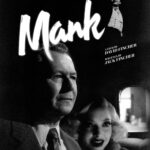In Arthur Miller’s grim masterpiece, Death of a Salesman, the stumbling Willy Loman careens downhill right in front of his two grown sons, one aimless and thieving, the other bent on whoring and cash. As “the only dream a man can have” disintegrates, Willy beseeches his sons, “Where are you guys? The woods are burnin’!” It’s a good question. Where are the men? I don’t know if they are still being moulded on the playing fields of Eton, but I’m having trouble finding them in my little acre.
The organizers of the Million Man March (now when was the last time you thought about that?) asked Willy’s question, lamenting the lostness they saw among African-American men. To their great credit (and that of the men) they found a lot of them, too, at least for a day. (1995. Whole different century.) Their concerns were not exclusive to the black community; their call was simply good and loud, and well-publicized, though it’s hard to hear now. We are noticing, more and more – and should it come as a surprise? – that, in all cultures, both genders have been affected, afflicted, by the huge changes of the past century, and specifically by the struggle for equality between women and men. This should never have been a zero-sum game; women’s advancement should not require male retreat, but there are disturbing signals.
Every thoughtful gathering of men is filled with guys in search of their fathers. (So are tail-gate parties, but beer and burgers make it easy to forget.) Like an astonishing number of his professional peers, basketball icon Vince Carter was raised by his mother, with his father only a marginal and shadowy presence; it’s a story Sports Illustrated writes again and again. If you can stand the corrosive resentment, listen to Eminem. He flails viciously at his mother, but his departed dad scores at least as high on his rage meter. As an educator and father, I worry. I see men in retreat, especially the young ones. Despite the advantages we still have (and let’s not whine about reduced opportunity; the corridors of commercial and political power are still dominated by the good ol’ White Male), we are leaving fields of honourable struggle in troops. The oppression of women remains a fact, but their emergence from it, at least in our part of the world, is an even stronger one. I’m afraid men are an endangered species.
I taught for a long time in a small-town high school. Recently, of the top 9 students academically honoured in grades 9-11, one was male, and through the ‘90s and into this century the proportion of boys winning academic distinctions was rarely as high as 30%. The last time I counted, among our June graduates receiving awards, 79% were young women (and thank goodness for Paul, or the numbers would have been worse!) Of the dozen young people on the school’s “Wall of Fame” for outstanding extracurricular involvement, one has a Y chromosome, and our student leadership was routinely dominated by eager girls. My school was no exception. University spokespersons are wondering out loud where the lads are. It is young men in our schools who appear most in need of the loving arm, the encouraging smile, not to mention greater numbers.
In December, my students were always asked to think and write on the anniversary vigils in remembrance of the Montreal Massacre. (1989. Remember?) Fourteen shining female students were hunted in their university classrooms and slaughtered by a young man who blamed their success for his uselessness. This event was news to most of my students. It was sobering to them, but only because of its scale and, perhaps, because it couldn’t be dismissed as a “crazy American” aberration. And now there has been the Dawson College rampage in the same Canadian city. Men keep threatening, hurting, even killing women they claim to love when they find they can no longer keep or control them. These, of course, are the shocking extremes. More often, men just seethe in terminal frustration, or fade away. Legions of boys and young men, and more than a few midlife crisis managers, find that if life insists on a look inside their hearts, there is a smoking hole where a role model ought to be. What is a guy supposed to do?
A man yearns to be useful. He needs a thing to work at. And yes, there are lots of toys – mechanical, electronic, chemical, female – to spend our hard-earned money and hormones on, not to mention being a slow-moving target for televised sport, World Wrestling Entertainment, record producers, porn kings, and the Hollywood hype machine. But we all know. All this “cannot fatten nor appease their thirst”, as the Teacher said, yet so many men, and most tragically the young ones, just can’t push themselves away from that all-you-can-eat banquet, or even realize that there is anywhere else to sit.
So I made the care and feeding of young men my specialty, teaching and coaching and prodding my four sons and their kind. Women trip and fall on this lurching, drunken planet, but they are building strength and vision and wisdom. They’re coming. They’re here, in every high school. I want to believe there will be enough good men brave enough to walk beside these bold and lovely ladies. It’s a big issue, but I suggest we start small. Take a man to lunch. Help a man across any metaphorical street you can. Let’s continue our work for the advancement of women, but don’t forget the boys!

